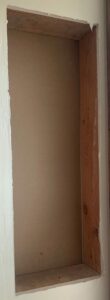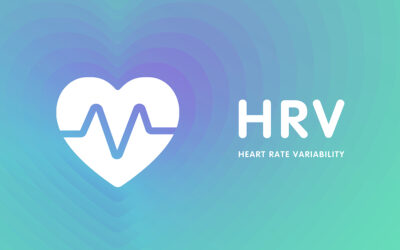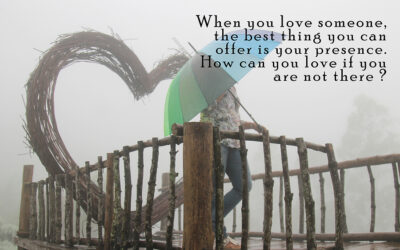“Although you may not always be able to avoid difficult situations, you can modify the extent to which you can suffer by how you choose to respond to the situation.” ~ Dalai Lama
Undoubtedly, the world is currently experiencing a difficult situation. We are living in unprecedented times: isolated at home for an indefinite period and not knowing how our daily lives, global community, or economy will look once we emerge from our confinement. How we view these circumstances directly impacts how much we suffer.
I am choosing to respond to this health crisis with cautious optimism. It is a unique situation, one that actually brings many opportunities and benefits for personal growth. I’ll discuss these unique opportunities in this blog.
Through my breast cancer experience, I came to realize how pointless it is to worry about becoming sick or being diagnosed with a disease. I never thought I’d get cancer! Not to say I didn’t try to prevent it and live a healthy lifestyle; I do need to be a model for wellness in my profession, after all.
However, in my conversations with other women, it became very clear to me that many of them deeply feared the disease. Many people asked me innumerable detailed questions about how the lump was discovered and diagnosis made. I repeatedly watched comments turn from my situation to focusing on prevention for the other person.
What is the point of all this worry? If you are diagnosed with cancer or Covid-19, face it, then deal with it the best you can. You have more resilience than you realize! Sometimes, you uncover your hidden strengths when you confront difficult situations. You can handle it! Learn how in my blog: What Are You Afraid Of – Can You Handle It?
Take all the recommended precautions, and then make the most of your situation and keep living. Turn off the news and consider the possibilities this global quiet provides.
Five Health Benefits of Slowing Down and Staying Home
1. Experience a Simpler, More Relaxed Way of Living and Being
In our modern, busy life, we rarely take a moment to pause and consider the direction of our lives and how we are spending our precious time. At the new year, we might reflect on the past 365 days, only to be swept quickly back into our rushed, over scheduled lives, falling back into comfortable, often unconscious and unhealthy patterns of being in the world.
What an extraordinary opportunity it is to be forced to slow down with literally nowhere to go. On our own we rarely, if ever, take the time to do this. There are too many distractions and endless to-do lists. We constantly feel pressured (often self-imposed) to do, go, accomplish, help . . . and continue to push, push, push. But for right now, our lives have become simplified as we focus on the essentials. For once we can let go of this over striving. We can finally relax, go with the flow, and just be.
Take time now to reflect on this unique time:
How does it feel to be more still?
What changes for you when life slows down?
How can you maintain some of the positive aspects of a simpler lifestyle going forward when the pace of life whips up again?
2. Deepen Social Connections
It may seem contradictory to talk about deepening social connections at a time of social distancing. However, it is possible and advisable. Start by considering your regular form of communication. Many of us prefer to text since it is quicker, and we don’t have time to get caught up in a lengthy conversation on the phone. Well, now we probably do have a little more time and can have those longer, more meaningful conversations that can draw us closer and strengthen relationships. Take it one step further and go virtual with video calls where you can see each other and share your home projects, hobbies, or cooking creations.
In many homes, families are being reunited as college students return home from school. Although challenging at times, I’m sure this does bring opportunity for more shared experiences and bonding. Sitting around the table for dinner again—how long has it been since that happened? Every night can feel like the holidays.
While unexpectedly together, you can pull out those old movies and photos, play games, laugh, and reminisce. I have heard of families taking on fitness challenges together. While being confined, one friend told me about her family goal of virtually “rowing from France to Scotland” on their exercise machine.
What creative challenges and activities can you do with your family?
I love my dogs. I walk them twice a day. Since quarantine I have seen dogs and people out walking in my neighborhood that I’ve never laid eyes on before. My husband and I wonder, Who are these people and why have we never seen them? It has been nice to meet and briefly socialize—from a safe distance—with those who live close by.
 And, it is great for the dogs. Some are likely getting more exercise than they ever have. I know my girls–Lily and Sasha–like having me home all day, playing with them and giving them lots of extra cuddles. It is good for all of us, providing us a nice dose of oxytocin, the love hormone. However, I think Sasha is a bit of an addict—she’s very intense with her penetrating brown eyes. I just hope we don’t have an epidemic of separation anxiety in our furry friends when we all go back to work.
And, it is great for the dogs. Some are likely getting more exercise than they ever have. I know my girls–Lily and Sasha–like having me home all day, playing with them and giving them lots of extra cuddles. It is good for all of us, providing us a nice dose of oxytocin, the love hormone. However, I think Sasha is a bit of an addict—she’s very intense with her penetrating brown eyes. I just hope we don’t have an epidemic of separation anxiety in our furry friends when we all go back to work.
Although we can’t physically get together, we can assemble virtually and share a sense of community. Many health professionals have begun offering free or low-cost group activities and resources online. (I have listed many on my Facebook page.) You’ll find Qigong classes, group meditations and audios, compassion training and more. You can also take my Posture Fitness Class through Zoom for free. Feeling that you are not alone, that you are part of a group with shared values and interests, can provide hope and comfort in these uncertain times.
3. Sleep Better and Increase Immunity
How have you been sleeping without the stress of having to rise early, cram in numerous activities throughout the day, and juggle competing priorities?
I have heard anecdotes of people finally sleeping through the night who haven’t for years, allowing them to ditch their sleeping pills. Matt Walker, PhD, sleep scientist and author of Why We Sleep, would smile at hearing this. As he describes in his book and Ted Talk, Sleep is Your Superpower, sleep touches every aspect of our health.
Sleep and Immunity
We currently self-isolate in order to stop the spread of Covid-19 and keep us healthy. While we’re at home, we can increase our odds of staying well by sleeping well. Coronavirus 2 causes the infectious disease Covid-19. To fight this disease and others, you need a strong immune system, and sleep quantity greatly impacts your immune system.
 From Why We Sleep:
From Why We Sleep:
“An Intimate and bidirectional association exists between your sleep and your immune system. Sleep fights against infection and sickness by deploying all manner of weaponry within your immune arsenal cladding you with protection. When you do fall ill the immune system actively stimulates the sleep system demanding more bedrest to reinforce the war effort. Reduce sleep even for a single night and that invisible suit of immune resilience is rudely stripped from your body.”
In his book, Walker writes of a study conducted at the University of California San Francisco in which they infected healthy men and women with the flu virus through direct injection into the nose. The results showed a linear relationship between sleep amount and infection rate. Those who had slept 7 or more hours each night during the previous week had an 18% infection rate, whereas those study participants averaging 5 hours of sleep a night the previous week had a much higher infection rate at 50%.
A second study that Walker mentions in his Ted Talk revealed a 70% drop in natural killer cell activity when sleep was reduced to 4 hours for only one night. Natural killer cells eliminate dangerous, unwanted elements within the body. Additionally, he found that the lack of sleep turned off the immune system genes. Clearly, the studies show that we need more sleep to have a strong immune system!
Determine How Much Sleep You Need
Generally, 7-8 hours is recommended. However, college professor Beverly Hosford, MS, says that might not be enough in her Sleep is Medicine webinar, available for free viewing from MedFit.
To determine the right amount of sleep for you, she recommends giving yourself ample time to sleep—up to 10 hours—and tracking how long you sleep for a week. This will give you a good idea about how much rest your body needs.
When I first heard this guidance, I thought, That’s a nice idea, but not at all practical to implement. But here is our opportunity. With many of us not needing an alarm clock these days, we can actually put this advice into action. The challenge, of course, will be honoring what we discover, especially when life kicks back into full gear.
4. Develop New Self-Nurturing Habits and Routines
Sleep is just one health behavior available for change during our time at home, although it might be one of the easiest and most pleasurable! Who hasn’t said they’d like to get more sleep? I know I have.
Other obvious areas for change include nutrition and exercise, though I might not recommend these right now. Behavior changes in these areas are hard, requiring focus and discipline, which may be lacking right now. Many of us have tried and failed to make these changes under more normal circumstances.
Although we can’t see it, a global cloud of stress lingers all around us. Regardless of how much you shelter yourself from the news and keep your attention elsewhere, you can’t escape it. This is the time to be extra kind to ourselves. It is tough right now. It is paramount to take care of ourselves. I encourage you to give yourself permission to indulge in activities that bring you peace and comfort.
In my case, this requires releasing guilt–a useless emotion, I know, yet one that I still feel. If you feel this way, too, try reminding yourself of our collective goal—a healthy population with robust immune systems. This works for me, and I treat myself to a steam shower most mornings.
What will you do to pamper yourself? And, will you maintain it after isolation? I plan to!
5. Improve Your Home Environment
Being stuck at home, you are becoming more and more familiar with your space. You’ve probably explored every area available, searching for some variety. Those nagging unfinished projects and cluttered spaces are staring you in the face day after day, beckoning your attention.
I’ve heard it said that physical clutter and mental clutter are related. Cleaning up your environment frees up space in your brain. The junk drawer, unpacked boxes and overflowing closets are all perfect projects to undertake now. How long has it been since you’ve worn that [piece of clothing]? Clearing space and reducing stuff helps you simplify your life and reduces stress.
Energy Drains
We all have them, whether it’s the clutter just mentioned, a hole in the wall, overgrown weeds, unfinished baseboards, or dusty shelves.

 For me, every time I would see the unfinished niches in my bathroom, energy would escape from me as I thought, We really need to finish those. That thought then led to a more negative inner dialogue about all the other unfinished projects: door trim, window sills, gardening, touch up painting, and on and on. All of this came from one innocent glance that could happen multiple times a day.
For me, every time I would see the unfinished niches in my bathroom, energy would escape from me as I thought, We really need to finish those. That thought then led to a more negative inner dialogue about all the other unfinished projects: door trim, window sills, gardening, touch up painting, and on and on. All of this came from one innocent glance that could happen multiple times a day.
I am happy to say that the niches are finished. Now when I go into the bathroom, I can relax, appreciate the renovated space, and feel good about a job completed. We want to turn our energy drains into energy boosts whenever possible.
When you look around your home environment, what drains your energy?
Although you may not be able to take direct action now because you need to hire someone, can’t obtain the supplies you need, etc., you can make a plan and prioritize the tasks. Most likely you’ll find plenty you can do now . . .
Conclusion
I like to believe there is a bright side to every situation, that there is something to be gained and learned through adversity. We grow the most when challenged. I hope you have connected with at least one of the ideas I have suggested here and will take action. I’d love to hear what you do and how you’re using the stillness of the world to your benefit! Please leave a comment below.



